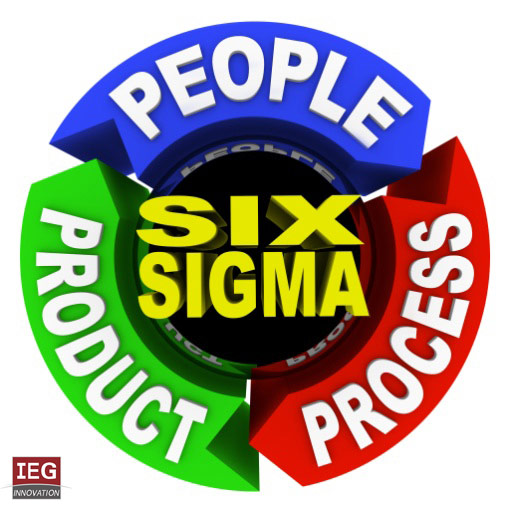
This course provides employees with the knowledge and methods to carry out Lean Six Sigma improvement activities——"correct and appropriate tools" to the students so that students understand the improvement concept of Lean Six Sigma and define the significance of Lean Six Sigma to business improvement; master DMAIC methodology and various improvement tools in order to promote and implement the day-to-day improvement projects.
Green Belt training is divided into two units, 5 days for each unit, totally 10 days. Lean Six Sigma GB Certificate will be awarded after completion. On the basis of green belt, the black belt training added into the courses of two units totally 10 days, and the Lean Six Sigma BB Certificate will be awarded after completion.
Note: What is Lean Six Sigma? In the mid-1990s, Six Sigma was successfully evolved from a quality management method to a highly effective business process design, transformation and optimization methodology by GE, went on to become the most important strategic initiatives and management philosophy of many multinationals in the world with the pursuit of management excellence. Lean production originated in the 1950s, Japan 's Toyota Motor Corp. It helped Toyota to become one of the world's leading automotive companies. Six Sigma focuses on reducing process fluctuations, while Lean focuses on process efficiencies. Lean Six Sigma combines both of them to produce huge amounts of energy.
1. Focusing on practice: based on practical experience of IEG consultants for ages, extracting appropriate tools and methods for carrying out Lean Six Sigma management, this course provides practical training for students.
2. Professional lecturers: IEG has many teachers with years of training and experience in counseling who are knowledgeable and experienced.
3. Easy to apply: the course provides many actual cases to carry out individual case study and group practice so as to help students apply what they had learned to work rapidly.
4. Professional certificates: student who had completed the course would be granted with Lean Six Sigma GB Certificate or BB Certificate by IEG Institute for Innovation.
Production Manager, QA Manager, mid-level leadership of the other departments, equipment management personnel, administrative staffs of production and quality department, Project Leader, Continuous improvement work promotion personnel, etc.
1. Cultivate talents for carrying Lean Six Sigma for the enterprises. Utilizing the methods of Lean Six Sigma, through the mastered improvement tools and concepts, help the enterprise to achieve breakthrough in business performance.
2. Enhance personal ability and provide nutrition for career development.
1. What is Lean Six Sigma DMAIC
2. Introduction to Lean Thinking, 8 Wastes, 5S Description
3. Concerned about the Voice of the Customer (VOC)
4. Project Management and TMAP
5. Overview of Definition Phase
6. Process Map Tool
7. Basic Statistics, Chart Tools and Introduction to Basic Functions of Minitab
8. Data Collection and Sampling Plan
9. Overview of Measurement Phase
10. Measure Index
11. Fishbone Chart and 5 Whys
12. C& E Matrix
13. Failure Mode and Effects Analysis (FMEA)
14. Measurement Systems Analysis (Continuous Data, Discrete Data)
15. Value Stream Map
16. Process Stability and Analysis (Continuous Data, Discrete Data)
17. Normal Test and Data Processing
18. Overview of Analysis Phase
19. Multi-variation Analysis
20. Introduction to Hypothesis Testing
21. T- test (One-sample, Two-sample, Paired)
22. Proportion Testing
23. One-way Analysis of Variance
24. Residual Test
25. Correlation and Simple Linear Regression
26. Overview of Lean Theory
27. Introduction to Experiment Design
28. Full Factorial and 2k Factorial Experimental Design
29. Center, Block, Imitating, Randomization, etc.
30. Control Plan
31. Poka-Yoke
32. Projects Close
33. GB Course Review
34. Project Selection and Project Management
35. Project Financial Income Accounting
36. Knowledge of Applied Statistics
37. Multiple Linear Regression
38. Logistic Regression
39. Advanced Variance Analysis
40. χ2 Test
41. Non-parametric Test
42. Test Power and Sample Size
43. Experimental Design—Full Factorial Design
44. JIT Introduction
45. Standardized Operation
46. Fractional Factorial Design
47. Response Surface Design
48. Method of Steepest Ascent
49. Taguchi Design Introduction
50. Slingshot Simulation Exercises
51. Process Simulation
52. Total Productive Maintenance
53. Single Minute Exchange of Die
54. Introduction to TRIZ